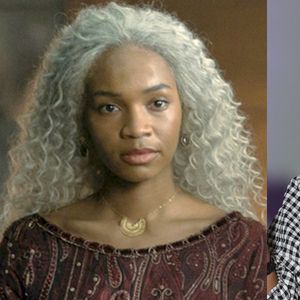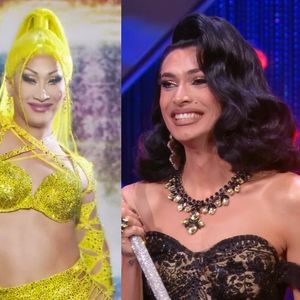CONTACTStaffCAREER OPPORTUNITIESADVERTISE WITH USPRIVACY POLICYPRIVACY PREFERENCESTERMS OF USELEGAL NOTICE
© 2024 Pride Publishing Inc.
All Rights reserved
All Rights reserved
By continuing to use our site, you agree to our Private Policy and Terms of Use.
Like most filmmakers, Aurora Guerrero's road to the Sundance Film Festival wasn't easy. Yet her path was unique because of all the people who came along for the ride. Guerrero's debut feature film, Mosquita y Mari, deals with subject matter that's not usually on Hollywood's radar: a deep, but complicated love between two young Latinas growing up in South East L.A.'s immigrant community. She worked for years to secure financing and drum up a community-based buzz for the film, but it was ultimately the support of over 800 admirers -- to the tune of over $82,000 -- that finally pushed the project into production.
But it's a tale that can't be quantified by dollars. The people who made the film and the community that supported it were often one in the same, all moved by the desire to see something different on the big screen. While it's rare to see queer cinema, it's even more difficult to find meaningful and authentic representations of Chicanos, much less ones that are written, produced, and directed by queer Chicana filmmakers.
Below, Guerrero talks about what inspired her to make the film.
Jamilah King: What inspired your film Mosquita y Mari?
Aurora Guerrero: When I was in film school we were tasked with writing about "something you know." I kept coming back to a friendship I had when I was 13. It was the first time I was bringing voice to a moment in my life that was so transformational. This friendship I had with this other girl gave me the courage to be comfortable in my own skin. And by that I'm referring to that awkwardness that comes at that age. Not always feeling like you fit in. As teens these are the relationships that are the most prominent -- especially the same-sex friendships. When someone comes to mean so much to you, I think other feelings can arise like love and desire. That's what surfaced in my friendship, and it seems that many people around me can relate to that experience.
It's not often that we hear and see love stories about young Chicanas growing up in South East Los Angeles. How did you come into filmmaking?
Precisely for that reason. As a young queer Xicana, I yearned for images of myself in media. It's only now that we're seeing a few, and by that I mean Santana on Glee. It's 2012 and we only have Santana? This was a big motivator for me to prioritize this story over other scripts I wanted to direct. But in general I came into filmmaking as an artist in love with the creative process and as an activist drawn to the potential film has to inspire reflection.
What was your reaction to hearing that the film you'd labored over for years would be making its debut at Sundance?
After the shock subsided I think I primarily felt grateful to everyone who stood by this project. I have had creative mentors alongside me for years, like Jim McKay, who never said "move on to another project." It's like we all knew this film would get made it was just a matter of when.
There have been a few independent films over the past few years that have presented a really complex and refreshing idea of what it means to be queer and of color. I'm thinking of La Mission and more recently, Pariah. Why is it important to tell a story like the one in Mosquita y Mari?
I believe it's important for me to challenge this notion of the monolithic Latino experience. There is no one Latino community. There is no one way to be Chicana, and there isn't a "classic" LGBT experience. Yet somehow mainstream media has done a great job at over simplifying our lives. This is a universal coming-of-age tale, but it's different because it's uniquely theirs.
It took years for this project to get financed and go into production. Last year, Mosquita y Mari got a lot of attention after successfully raising over $80,000 on Kickstarter, an online crowdsourcing website. What did that type of community support mean to you?
For hundreds of people to dig into their pockets during these difficult financial times and contribute to this film meant that there was a need to see this story told. There was no stopping me after that point. I felt confident that this film had an audience and a purpose. I think deep down I had faith that a film like Mosquita y Mari, which centers the lives of a marginalized community, would rally people behind it -- especially the younger generations who are ready to see a broader scope of representation.
Mosquita y Mari is currently playing at the Sundance Film Festival.
Want more breaking equality news & trending entertainment stories?
Check out our NEW 24/7 streaming service: the Advocate Channel!
Download the Advocate Channel App for your mobile phone and your favorite streaming device!
From our Sponsors
Most Popular
Here Are Our 2024 Election Predictions. Will They Come True?
November 07 2023 1:46 PM
Meet all 37 of the queer women in this season's WNBA
April 17 2024 11:24 AM
17 Celebs Who Are Out & Proud of Their Trans & Nonbinary Kids
November 30 2023 10:41 AM
Here Are the 15 Most LGBTQ-Friendly Cities in the U.S.
November 01 2023 5:09 PM
Which State Is the Queerest? These Are the States With the Most LGBTQ+ People
December 11 2023 10:00 AM
These 27 Senate Hearing Room Gay Sex Jokes Are Truly Exquisite
December 17 2023 3:33 PM
10 Cheeky and Homoerotic Photos From Bob Mizer's Nude Films
November 18 2023 10:05 PM
42 Flaming Hot Photos From 2024's Australian Firefighters Calendar
November 10 2023 6:08 PM
These Are the 5 States With the Smallest Percentage of LGBTQ+ People
December 13 2023 9:15 AM
Here are the 15 gayest travel destinations in the world: report
March 26 2024 9:23 AM
Watch Now: Advocate Channel
Trending Stories & News
For more news and videos on advocatechannel.com, click here.
Trending Stories & News
For more news and videos on advocatechannel.com, click here.
Latest Stories
Tristan Snell, who brought down Trump University, sees conviction in hush money case
April 22 2024 7:36 PM
Joe Biden admin marks Earth Day with major environmental initiatives
April 22 2024 4:18 PM
Texas Gov. Greg Abbott: 'We want to end' trans and gender nonconforming teachers
April 22 2024 4:13 PM
Nonbinary 17-year-old killed two years after being reported missing
April 22 2024 3:46 PM

Pride
Yahoo FeedIndulge in luxury and sensuality with The Pride Store’s Taurus gift guide
April 22 2024 11:46 AM
The gay man leading the Earth Day Initiative offers hope for the future
April 22 2024 9:00 AM
Pattie Gonia takes drag and fierceness to Capitol Hill to voice environmental concerns
April 22 2024 8:23 AM
Jodie Foster leaves her mark in cement at L.A.'s Chinese Theatre
April 22 2024 7:55 AM
Climate change has a bigger impact on LGBTQ+ couples than straight couples. Here's how
April 22 2024 7:42 AM
Iraq postpones vote on bill punishing gay sex with death
April 20 2024 1:31 PM
Russian poetry contest bans entries from transgender poets
April 20 2024 1:25 PM
Here's who won 'RuPaul's Drag Race' season 16
April 20 2024 1:01 PM
The Tip Off: A beginners guide to the WNBA
April 20 2024 11:06 AM

















































































